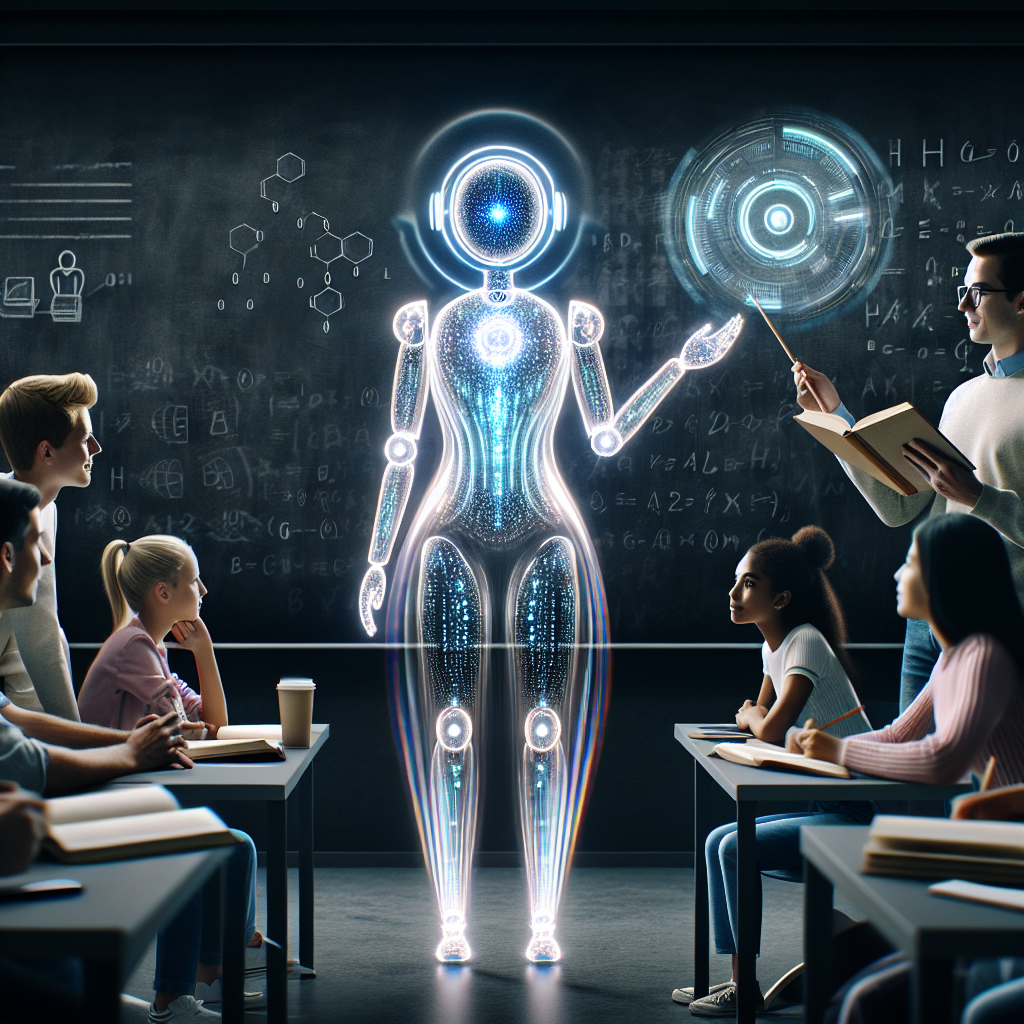AI-Powered Tutoring: The Next Frontier in Education
In recent years, artificial intelligence (AI) has made significant advancements in various industries, including education. One of the most promising applications of AI in education is AI-powered tutoring, which has the potential to revolutionize the way students learn and teachers teach. In this article, we will explore the benefits of AI-powered tutoring, how it works, and its potential impact on the future of education.
What is AI-Powered Tutoring?
AI-powered tutoring is a technology that uses artificial intelligence algorithms to provide personalized learning experiences for students. These algorithms analyze a student’s performance, learning style, and preferences to create customized learning paths and recommendations. AI-powered tutors can help students with homework, test preparation, and remedial learning, as well as provide real-time feedback and support.
How Does AI-Powered Tutoring Work?
AI-powered tutoring works by collecting and analyzing data from students’ interactions with the system. This data can include information such as the student’s responses to questions, time spent on tasks, and overall performance. The AI algorithm then uses this data to create a personalized learning plan for each student, taking into account their strengths, weaknesses, and learning goals.
AI-powered tutoring systems can deliver content through various mediums, such as text, audio, video, and interactive simulations. They can also provide real-time feedback and support to help students stay on track and make progress. In addition, AI-powered tutors can adapt to each student’s pace and level of understanding, providing additional resources or challenges as needed.
Benefits of AI-Powered Tutoring
There are several benefits of using AI-powered tutoring in education:
1. Personalized Learning: AI-powered tutors can tailor learning experiences to each student’s individual needs, preferences, and learning styles. This personalized approach can help students stay engaged and motivated, leading to better learning outcomes.
2. Immediate Feedback: AI-powered tutors can provide instant feedback on students’ performance, allowing them to correct mistakes and improve their understanding in real-time. This immediate feedback can help students learn more efficiently and effectively.
3. Accessibility: AI-powered tutoring systems can be accessed anytime, anywhere, making learning more flexible and convenient for students. This accessibility can benefit students who may not have access to traditional tutoring services or resources.
4. Efficiency: AI-powered tutors can automate routine tasks, such as grading assignments and tracking progress, freeing up teachers’ time to focus on more complex and meaningful aspects of teaching. This efficiency can help teachers better support their students and provide more personalized instruction.
5. Scalability: AI-powered tutoring systems can scale to accommodate a large number of students, making it possible to reach more learners and address the growing demand for educational support. This scalability can help reduce the educational achievement gap and ensure that all students have access to quality tutoring services.
Impact on the Future of Education
AI-powered tutoring has the potential to transform the way education is delivered and received. By providing personalized learning experiences, immediate feedback, and accessibility, AI-powered tutors can help students learn more effectively and efficiently. This can lead to improved academic performance, increased engagement, and better outcomes for students of all ages and abilities.
In addition, AI-powered tutoring can support teachers in their efforts to provide high-quality instruction and support to their students. By automating routine tasks and providing personalized recommendations, AI-powered tutors can help teachers better understand their students’ needs and make informed decisions about their learning. This can lead to more effective teaching practices and better outcomes for students.
Overall, AI-powered tutoring has the potential to revolutionize education and create a more inclusive, equitable, and effective learning environment for all students. By harnessing the power of artificial intelligence, we can help students reach their full potential and prepare them for success in the 21st century.
FAQs
Q: Can AI-powered tutoring replace traditional tutoring services?
A: While AI-powered tutoring can provide personalized learning experiences and immediate feedback, it is not intended to replace traditional tutoring services. AI-powered tutors can complement traditional tutoring services by providing additional support and resources for students. It is important for educators and parents to consider the unique needs of each student and determine the best approach to meet their learning goals.
Q: Is AI-powered tutoring suitable for students of all ages and abilities?
A: AI-powered tutoring can be beneficial for students of all ages and abilities, as it can provide personalized learning experiences and adapt to each student’s pace and level of understanding. However, it is important to consider the individual needs and preferences of each student when implementing AI-powered tutoring. Educators and parents should work together to ensure that students receive the support and resources they need to succeed.
Q: How can educators integrate AI-powered tutoring into their teaching practices?
A: Educators can integrate AI-powered tutoring into their teaching practices by using it as a supplemental tool to support student learning. Teachers can use AI-powered tutors to provide personalized recommendations, track student progress, and identify areas for improvement. By incorporating AI-powered tutoring into their teaching practices, educators can enhance their ability to meet the diverse needs of their students and provide more effective instruction.
Q: What are some challenges of implementing AI-powered tutoring in education?
A: Some challenges of implementing AI-powered tutoring in education include the need for adequate resources and training, concerns about data privacy and security, and the potential for bias in AI algorithms. Educators and policymakers must address these challenges to ensure that AI-powered tutoring is implemented in a responsible and ethical manner. By working together, we can harness the power of artificial intelligence to create a more inclusive and effective learning environment for all students.

